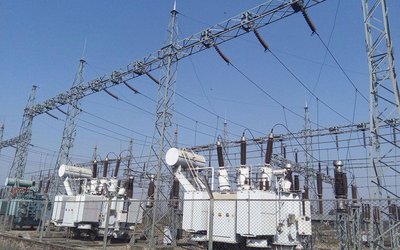My last column on Jan 11, 2017 was about rising inequality, and the increasing concentration of wealth both within and between countries. Then, came the Corruption Perception Index (CPI) on Jan 25, released by Transparency International, the leading civil society organization fighting corruption worldwide, and Nepal received Bronze Medal for being the third most corrupt country in South Asia.
This year’s results highlight the connection between corruption and inequality, which feed off each other to create a vicious circle between corruption, unequal distribution of power in society, and unequal distribution of wealth.
The Chair of Transparency International José Ugaz has maintained that in too many countries, people are deprived of their most basic needs and go to bed hungry every night because of corruption, while the powerful and corrupt enjoy lavish lifestyles with impunity.
The interplay of corruption and inequality also feeds populism. The report pays special attention to the global rise of populism. It argues that populism is caused by social inequality, which is then exploited by politicians.
Look at Nepal, political leaders use the corruption-inequality as populist agenda during people’s movement and election campaigns but don’t make serious attempt to reduce or stop corruption. They are largely seen to breed corruption when they come to power and to remain in power.
We can discuss and debate about the causes and possible remedies of corruption in Nepal. The accountability of people’s representatives is critical. A corrupt person cannot be a leader, cannot be a parliamentarian, cannot be a minister or prime minister.
We need some immediate tasks to address corruptions in view of three elections possibility in 1 year:
- Setting up a mechanism to regulate and channel political financing at the federal, provincial and local levels.
- Improving transparency in relations between party politics and bureaucracy. The minister has to work as a government minister not as a party leader, and the political parties must stop their trade unions in politicizing bureaucracy and involving in financial dealings.
- Improving budgetary process, creating transparency and openness in government spending, cutting bureaucratic red tape and strengthening performance audit to minimize opportunities for corruption.
In the long run, we need to focus on value based education, raise awareness of people and create culture of integrity. We need to empower ordinary citizens so that they can ask right questions to the duty bearers demanding transparency and accountability. Young people can bring about cultural change in attitudes and behaviors towards corruption.
We need to promote a system to punish the guilty and turning corruption from a low risk, high return activity to a high risk, low return activity. We need to decentralize information and communications with the use of technology, and promote public hearing and public audit to improve transparency in the sources and uses of funds by the government and civil society organizations.
Controlling corruption is self-discipline. The first step in bringing an end to corruption starts with you; obey the law and encourage those around you to do the same.
Dr. Manandhar is an expert of international development. Currently, he is working as Country Director of The Lutheran World Federation. He is the Chair of the Association of International NGOs in Nepal (AIN). He is also a visiting faculty at the Kathmandu University. He can be reached at prabin.manandhar11@gmail.com
- Investing In Women: Accelerating Progress
- Mar 10, 2024
- Embracing The 'Empty Chair: Advancing Global Inclusivity And Equitable Development
- Dec 29, 2023
- Mental Health In Youth
- Jul 16, 2023
- Controversial Constituency Development Fund in Nepal: Public Concerns
- Jun 18, 2023
- International Women’s Day 2023: DigitALL
- Mar 06, 2023

















